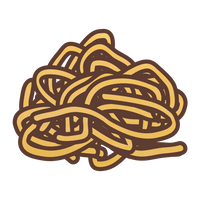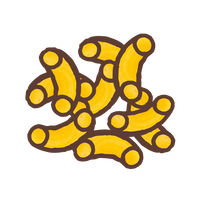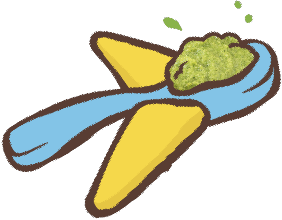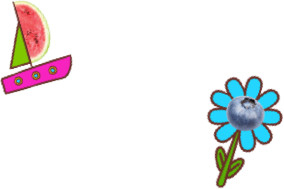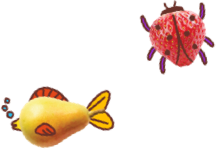Claire Baseley
Infant nutritionist / Makes Ella's Good
Growing babies loooove new tastes and textures but not all food is safe for babies weaning…
During baby weaning, it’s important that little ones eat lots of variety, particularly a rainbow of vegetables and fruits, as the more foods they try on their weaning journey, the more likely they are to accept new foods as they grow up.
However, there are some foods that it’s best to avoid when your little one is learning to eat from a safety or nutritional perspective
Tiny kidneys are just developing, so babies under 12 months of age shouldn’t eat more than one gram of salt a day. Avoid foods with added salt, watch out for processed foods not intended for babies such as stock cubes, pasta sauces + breakfast cereals, salted savoury snacks or takeaways.
Little ones are sweet enough! It’s fine to give babies fruit but it’s best to avoid foods with a lot of added sugar like sweets, cakes or sweetened puddings. Lots of sugar isn’t kind to tiny teeth so it’s important to try and give your baby a balance of vegetables and fruits and go for yoghurts without added sugar.
Honey is fine in small amounts once your baby is 12 months old but for younger babies, it’s best avoided, as it can sometimes contain bacteria that can upset tiny tummies and make your little one very poorly.
Mould ripened cheeses like brie, Roquefort and unpasteurised cheeses may cause food poisoning. The same goes for raw or lightly cooked eggs that don’t have a Red Lion stamp. Make sure these eggs are cooked all the way through. Red Lion eggs are fine to serve lightly cooked, if you’re making dippy eggs.
While it’s OK to give your baby cooked rice, it’s best to avoid giving rice milk, as it can contain a contaminant called arsenic. All little ones 6 months and over need to drink with their meals is breast milk or their usual formula and water.
Small, hard foods like whole nuts can be a choking risk, so it’s best to give babies over 6 months nuts in powdered or butter form.
Whole grapes, cherry tomatoes and sausages may also present a choking risk, so try to slice these foods into quarters lengthways before giving to your baby.
Small foods can be great for helping little ones at around 10 months of age to practice their pincer grip. Just make sure these foods are super soft and easy to chew, like halved blueberries or raspberries.
Foods that crumble, break or flake into small bits easily can be a choking risk so steer clear of crumbly biscuits, brittle crackers, flaky pastry or hard crisps. Go for foods that have a soft, melty texture like well-cooked vegetable sticks about the size and shape of your index finger so little ones can grip easily and feed themselves.
You might be surprised to learn that little ones CAN have herbs and spices, even chilli in small amounts. You don’t have to offer bland foods, even during baby weaning!


